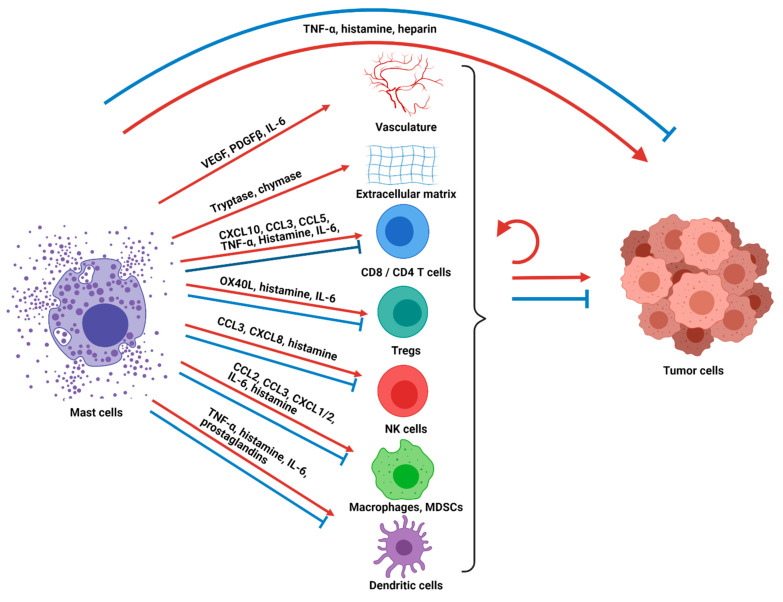Figure 1.
Mast cells are orchestrators of anti-tumor immunity and tumor control. Mast cells directly impact tumor cells as well as immune and non-immune components of the tumor microenvironment through chemokine secretion and release of other mediators, leading to varied cancer-promoting or cancer-suppressive properties. These components of the tumor microenvironment can further interact with each other and/or the tumor cells directly, with the net cumulative signals determining the impact on tumor control. TNF-α, tumor necrosis factor alpha; VEGF, vascular endothelial growth factor; PDGF-β, platelet derived growth factor beta; IL-6, interleukin 6; CXCL10, C-X-C motif chemokine ligand 10; CCL3, chemokine ligand 3; CCL5, chemokine ligand 5; OX40L, OX40 ligand; CXCL8, C-X-C motif chemokine ligand 8; CCL2, chemokine ligand 2; CXCL1/2, chemokine ligand 1 or 2; Tregs, regulatory T cells; NK cells, natural killer cells; MDSCs, myeloid-derived suppressor cells.

